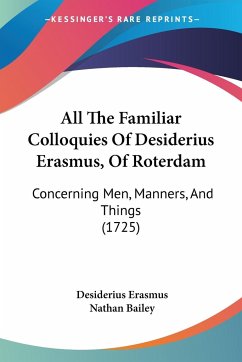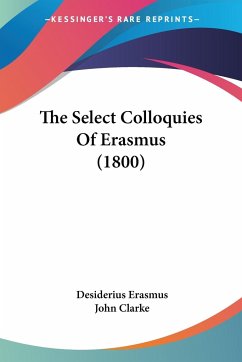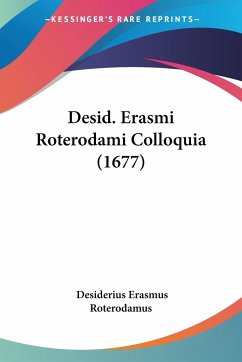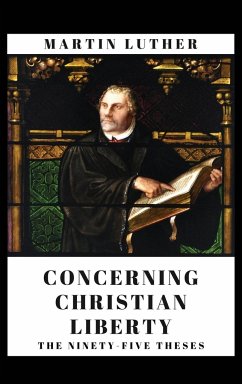
All The Familiar Colloquies Of Desiderius Erasmus, Of Roterdam
Concerning Men, Manners, And Things (1725)
Versandkostenfrei!
Versandfertig in 1-2 Wochen
43,99 €
inkl. MwSt.

PAYBACK Punkte
22 °P sammeln!
All The Familiar Colloquies Of Desiderius Erasmus, Of Roterdam: Concerning Men, Manners, And Things is a book written by the famous Dutch philosopher and writer, Desiderius Erasmus. The book is a collection of colloquial dialogues that Erasmus wrote during the 16th century, which were intended to teach Latin to students in a more engaging and entertaining way. The colloquies cover a wide range of topics, including religion, politics, education, and social customs. They feature a variety of characters, from students and teachers to merchants and farmers, and are set in different locations acros...
All The Familiar Colloquies Of Desiderius Erasmus, Of Roterdam: Concerning Men, Manners, And Things is a book written by the famous Dutch philosopher and writer, Desiderius Erasmus. The book is a collection of colloquial dialogues that Erasmus wrote during the 16th century, which were intended to teach Latin to students in a more engaging and entertaining way. The colloquies cover a wide range of topics, including religion, politics, education, and social customs. They feature a variety of characters, from students and teachers to merchants and farmers, and are set in different locations across Europe. The book is divided into four parts, each containing a number of colloquies. The first part focuses on the education of children, while the second part deals with the manners and customs of different social classes. The third part explores the religious beliefs and practices of the time, and the fourth part covers various other topics, such as medicine, law, and politics. Erasmus is known for his wit, humor, and satire, and these qualities are evident throughout the colloquies. He uses the dialogues to poke fun at the follies and vices of his contemporaries, while also offering insightful commentary on the issues of his day. Overall, All The Familiar Colloquies Of Desiderius Erasmus, Of Roterdam: Concerning Men, Manners, And Things is a fascinating and entertaining glimpse into the life and times of one of the most influential thinkers of the Renaissance era.This scarce antiquarian book is a facsimile reprint of the old original and may contain some imperfections such as library marks and notations. Because we believe this work is culturally important, we have made it available as part of our commitment for protecting, preserving, and promoting the world's literature in affordable, high quality, modern editions, that are true to their original work.












